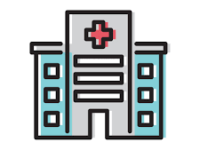A daily walk could be made less tedious if with each step, a user was generating energy to unlock new planets and worlds. Imagine powering a spaceship that could travel light-years with a new mission every day just by walking in your own city. Suddenly, the exercise seems like something to look forward to. This is what the game Walkr is aiming to accomplish: gamifying healthcare.
Turning healthy habits or taking medication into a game could revolutionize how patients engage in fitness and healthcare. With the recent surge in gaming technology, this is quickly becoming a reality.
“Turning healthy habits or taking medication into a game could revolutionize how patients engage in fitness and healthcare.”
Converting medical research and healthcare into games is successful for numerous reasons. It appeals to people’s desire to compete and win, and collecting points can release dopamine in the brain, which gives people a shot of happiness. In addition, it is far more engaging for not only children but adults too. For many, taking medications and staying regimented can be dreary. However, the exhilaration of video games, with the colorful imaging and storylines, can make staying healthy not just manageable, but even exciting.
“The exhilaration of video games, with the colorful imaging and storylines, can make staying healthy not just manageable, but even exciting.”
There are many different ways the healthcare industry is incorporating gaming technology into itself. For example, physical therapy can be a long, frustrating process. But a game that challenges patients to complete their daily stretches for allotted points? It can make people competitive and interested, and allows them to see their progress. A child may refuse to take their medication unless they are playing a game that takes place in history, and the medicine represents the only way to save a long-lost civilization. Sounds like fun now, doesn’t it? Additionally, scientists have used games to accelerate the process of collecting research on people’s brains such as those with Alzheimer’s.
The history of healthcare game technology can be traced back to 1989, when the first game that rewarded users for healthy behavior was created. This was the period of time when video games were becoming extremely popular and the technology was quickly advancing. Soon, there were numerous games that supported physical activity and other healthy habits. From there, the gaming technology snowballed in the industry, improving rapidly.
These are only the start of what gaming technology could do for healthcare. Soon, there will be VR programs that could completely change the game. There is no limit to what this technology could do for the industry in the coming years, especially with how fast video games have been developing. Not only does it make it more captivating to take part in, but it makes gathering data more accurate, medical routines more efficient, and people more eager to take part in them.






